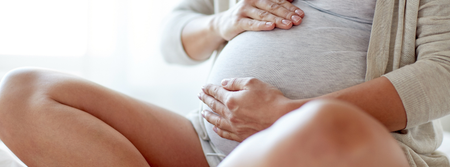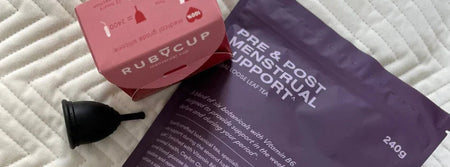This article is written by medical professional Dr. Alice Byram, whom you can read more about at the end of the article.
What Is PCOS?
Polycystic ovary symptom or PCOS as it is still currently known, is an endocrine condition in which your ovaries having many “cysts”. This is just one of the possible aspects of it. The “cysts” on the ovaries are not real cysts, but rather follicles, and don’t lead to cancer. If you have cysts, it doesn’t automatically mean that you have PCOS. Which is why there is currently some debate about changing the name of PCOS. Whatever the name, it also leads to:
- Monthly ovulation not occurring and therefore to irregular periods.
- Increases in male hormones (androgens) which are behind some of the symptoms listed below such as hirsutism.
How Do I Know If I Have PCOS?
If you have any of the following symptoms, and especially if you have a family history of PCOS, speak to your doctor:
- Increased body hair (including facial). This is known as hirsutism.
- Loss of hair on your head (Alopecia).
- Irregular or no periods.
- Problems getting pregnant.
- Rapid weight gain or problems losing weight.
- Oily skin and acne.
- Depression and mood swings.
If you do have PCOS, you are not alone. It is estimated that 1 in every 10 women are affected by PCOS in the UK.
What Causes PCOS?
Although the cause is not clear, irregularities and imbalances in the menstrual cycle along with increased insulin production are thought to be behind it. Along with a possible genetic or family tendency. It also seems to be the case that women with “cysts” on their ovaries may only start showing symptoms at certain times in their life, for example, if they put on weight.
Is There A Treatment For PCOS?
There is currently no cure but there is treatment.
Medical treatment includes oral contraceptives to regulate the menstrual cycle:
- Metformin can be used for the diabetes caused by the increase in insulin and/or the body’s resistance to insulin.
- Hirsutism, or excess hair, can be treated by removing the hair, or by medications which try to rebalance the hormones causing the hair excess.
- If you have irregular periods, you may find that a menstrual cup helps you manage irregularities better than other period products. Period cups can deal easily with heavier periods and can also be inserted on the days when you are not sure if your period will come or not, without drying out the vagina or altering the vagina’s pH.
- Lifestyle changes such as eating healthy foods, losing weight and exercise have been found to be as important as medication. This does not mean that you don’t go to see a doctor but that you look at these options and get support from your doctor or practise nurse. Weight loss may be harder for you if you have PCOS. Losing weight is also linked to reducing fertility problems.
PCOS can greatly impact a person’s life but help is out there. Verity is a UK charity recommended by the Royal College of Obstetricians and Gynecologists. If talking about this condition with your family and friends is too emotional, you could also forward or print off the college patient information leaflet and give it to your close friends and family as a way of sharing what is going on.
_________________________________
Written by Dr Alice Byram Bsc Med & Surg UMA MA Hons MML Cantab
Dr Alice Byram was born in England to a French-British family. Following on from a degree in Spanish from the University of Cambridge, she went to Spain to study medicine. On her return to the UK, she worked in Emergency Medicine for several years before recently returning to Barcelona.










